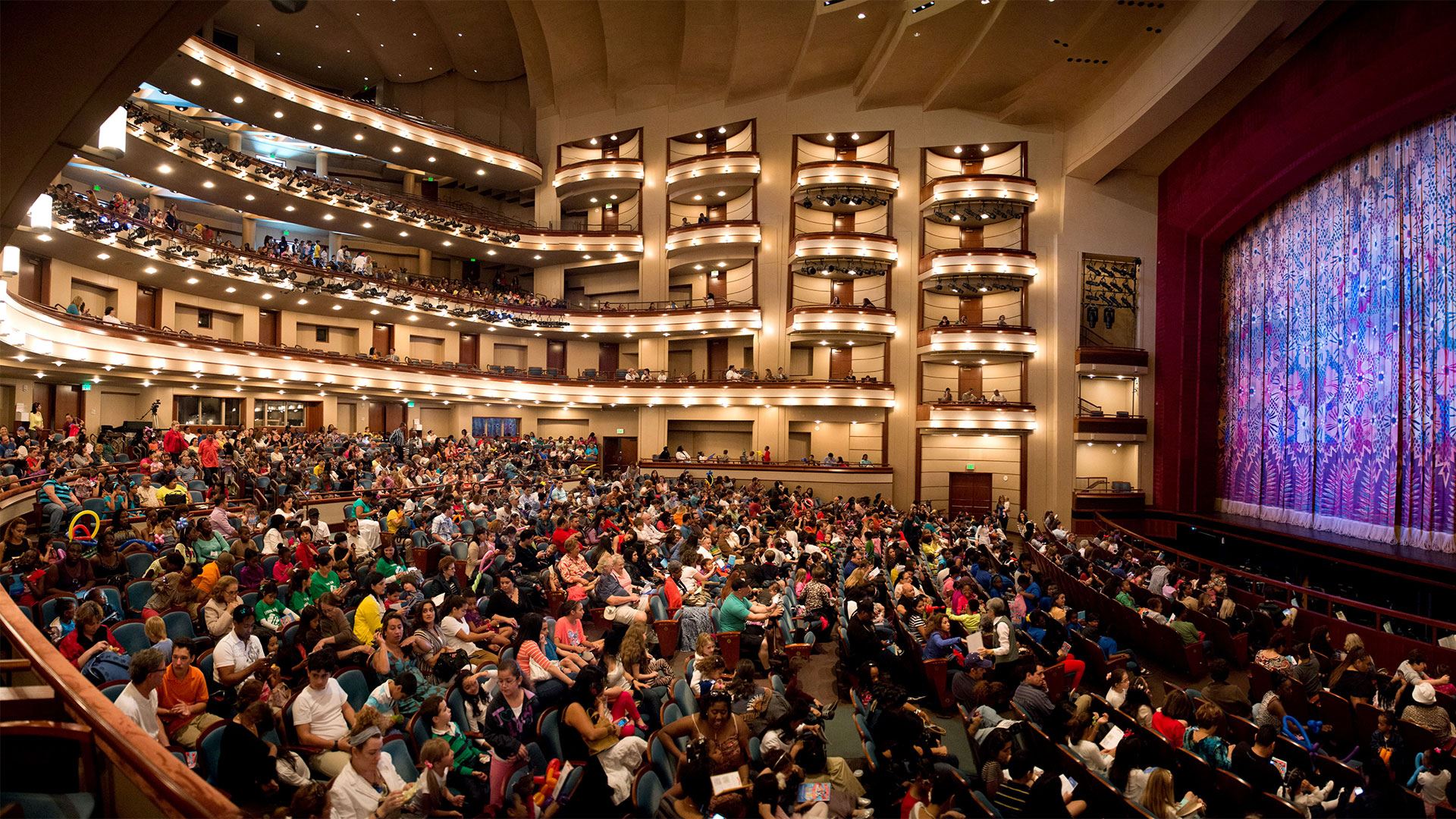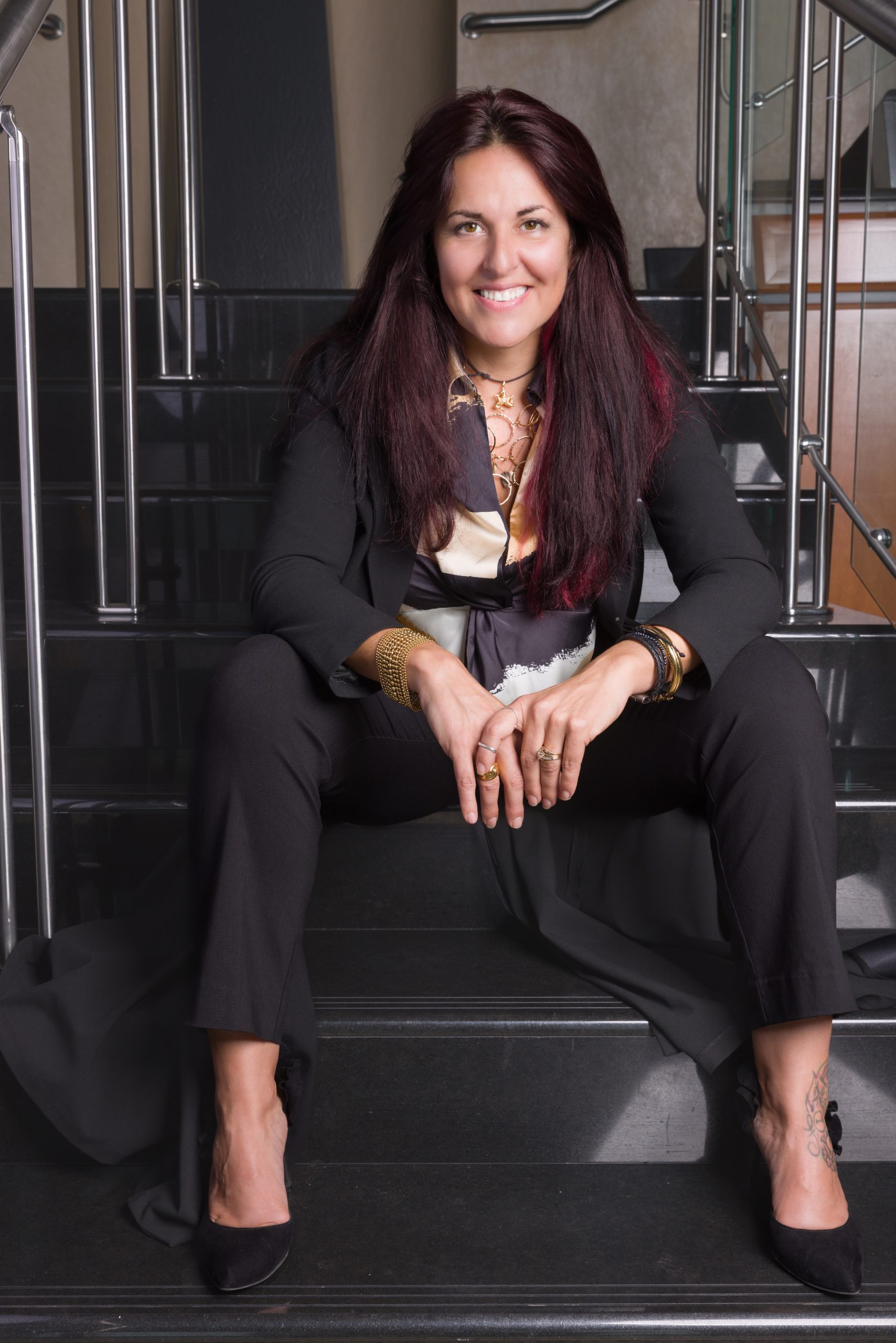
Women have carved out legendary performance careers in opera. A few have also made their mark behind the scenes, in leadership and creative roles. Maria Todaro is one of them. And her career is fascinating in several ways.
As of Autumn 2023, Todaro is the Interim General Director of the FGO, the Florida Grand Opera. Her extensive background includes performing, creative, and administrative roles but her roots in music go back to her earliest years; her grandmother headed a prestigious vocal and piano competition in Brazil, and both her parents were opera singers. “I was born into it,” she explained with pride. Illustrious singers came to visit her family when she was young and “I was surrounded by those giants of opera all my life.”
Her resume is extraordinary: she has sung (as a mezzo-soprano), founded the production company Arteodor in France, worked as a stage director and shepherded 23 productions for a few American opera companies. She has staged 16 original productions and collaborated as a librettist. She is a co-founder of the Hudson Valley International Festival of the Voice, and is the recipient of cultural and community affairs awards. She also is fluent in five languages.
Todaro brings her wealth of experience, skill sets, and more to the FGO, located in Miami and Fort Lauderdale, the seventh oldest opera company in the United States. This season the FGO is presenting three of the most beloved operas of all time, La Traviata, I Pagliacci, and La Bohème. Todaro adores La Traviata and its “eternal, powerful context. It’s timeless; we can all identify with it, the sacrifice and the love, how things don’t go the way you want it, societal pressure and more. You can identify with it as a parent, a young person, as a professional.”
 Todaro has dealt with various challenges throughout the many chapters of her professional career, and described the particular difficulties of staging Tosca during the height of the Covid pandemic. She worked on staging a production of Tosca in August 2020 with few protocols of safety yet installed. “We had doctors on board and we created a manual for social distancing. And this is an opera where passion is the story. How do we convey love, rape, murder when the performers cannot touch?” They solved this by “incorporating and innovating technology,” and they even used Jumbotrons. The production was set up with the stage in a large parking lot. “It was very challenging!”
Todaro has dealt with various challenges throughout the many chapters of her professional career, and described the particular difficulties of staging Tosca during the height of the Covid pandemic. She worked on staging a production of Tosca in August 2020 with few protocols of safety yet installed. “We had doctors on board and we created a manual for social distancing. And this is an opera where passion is the story. How do we convey love, rape, murder when the performers cannot touch?” They solved this by “incorporating and innovating technology,” and they even used Jumbotrons. The production was set up with the stage in a large parking lot. “It was very challenging!”
This season the FGO will be mounting La Traviata, and Todaro relishes this because it showcases “Verdi’s exquisite talent, and the music carries the drama so beautifully.” She has great faith in how the FGO will present this classic: “the cast, the chorus, the orchestra, all the people are stellar. I went to the rehearsals and was blown away by our chorus. The lavishness of this particular production is wonderful.”
When asked what her all-time favorite operas are, Todaro did include La Traviata, and also mentioned Tosca and La Boheme; but these were not easy decisions to select; “It’s hard to answer. They make me cry when I direct them, they are by exquisite composers who even today are geniuses to me. It is so hard to choose just a few favorites.”
Todaro sees clearly the challenges of reaching new audiences, younger and those just curious about operas, while also catering to the regular fan base. “If we can make opera an experience destination, and seduce a wider array of people” she will be very pleased. “We have a reputation to debunk, that opera is always stuffy and expensive, the myth that it is static: it’s not true. Think about it, opera is about the emotion we can receive in a movie.” She mentioned that there are tickets to FGO performances that start at just $22.
“It is a branding challenge and we have to communicate better what we really are. But once people come to one opera, they love us, the experience, and hearing the human voice not enhanced by microphones!”
Todaro also has worked as a librettist and noted that “the research is difficult yet exciting. When you write (an opera) you have to digest” the information and story elements. “It’s the feel, the feelings behind what you will hear, what you give voice to.”
Interestingly she noted that there are “similarities with opera and the sports universe. They both work on devotion, dedication to the craft.” She sees this link as a way to reach younger potential audiences: “I want teens to come to the opera, I do. The FGO has a huge educational department and we are boosting it. We also have internships at the FGO, and we want to empower girls, get them more involved,”
Will virtual and augmented reality have growing roles in the opera in general, and at the FGO specifically? Yes, although the headsets are not yet up to the challenge of lengthy operas. “We have digital sets, mapping, and projected aspects. We even want to explore the possibilities for the hard of hearing (HoH) community, even the visually impaired audience. And we can incorporate aspects of virtual and augmented reality in order to reach their needs to experience opera.”
The ageless and the modern, the past and the future: all are part of Maria Todaro’s workday. Buffeted by beautiful and expressive music, she has a challenging but inspiring position, which she clearly loves deeply.
– Ellen Levitt, Grecia Magallanes, S&P


Leave a Reply